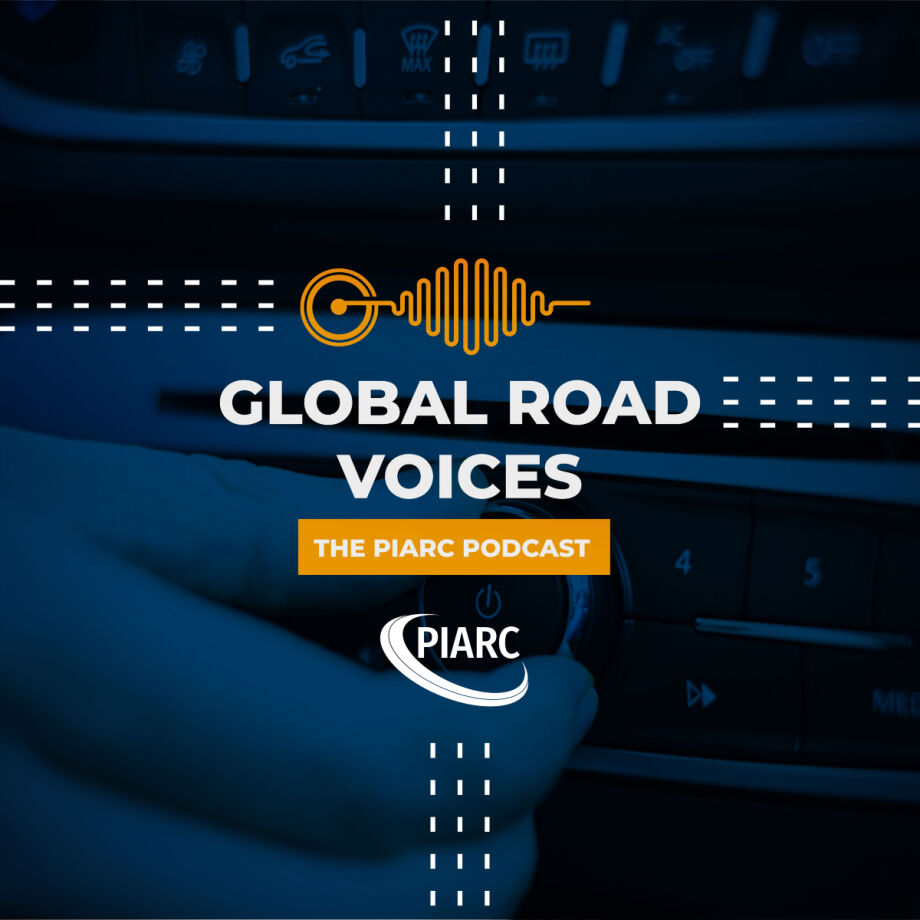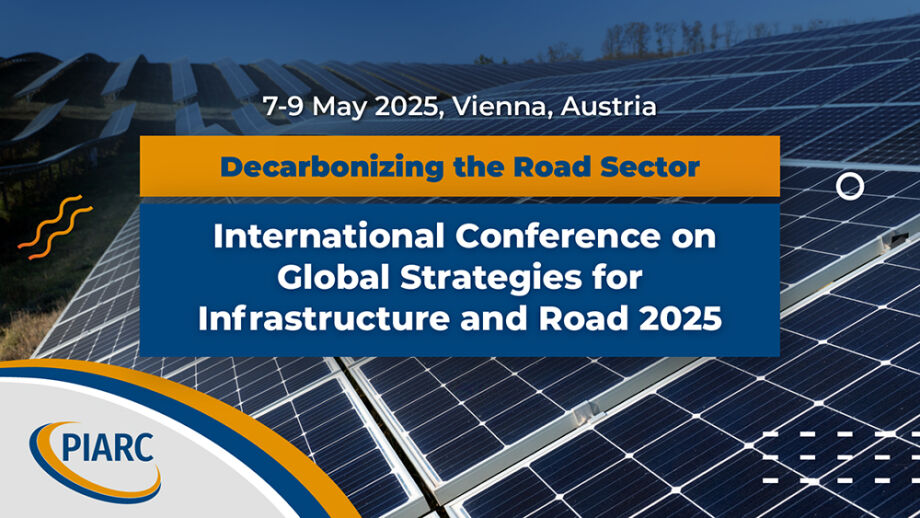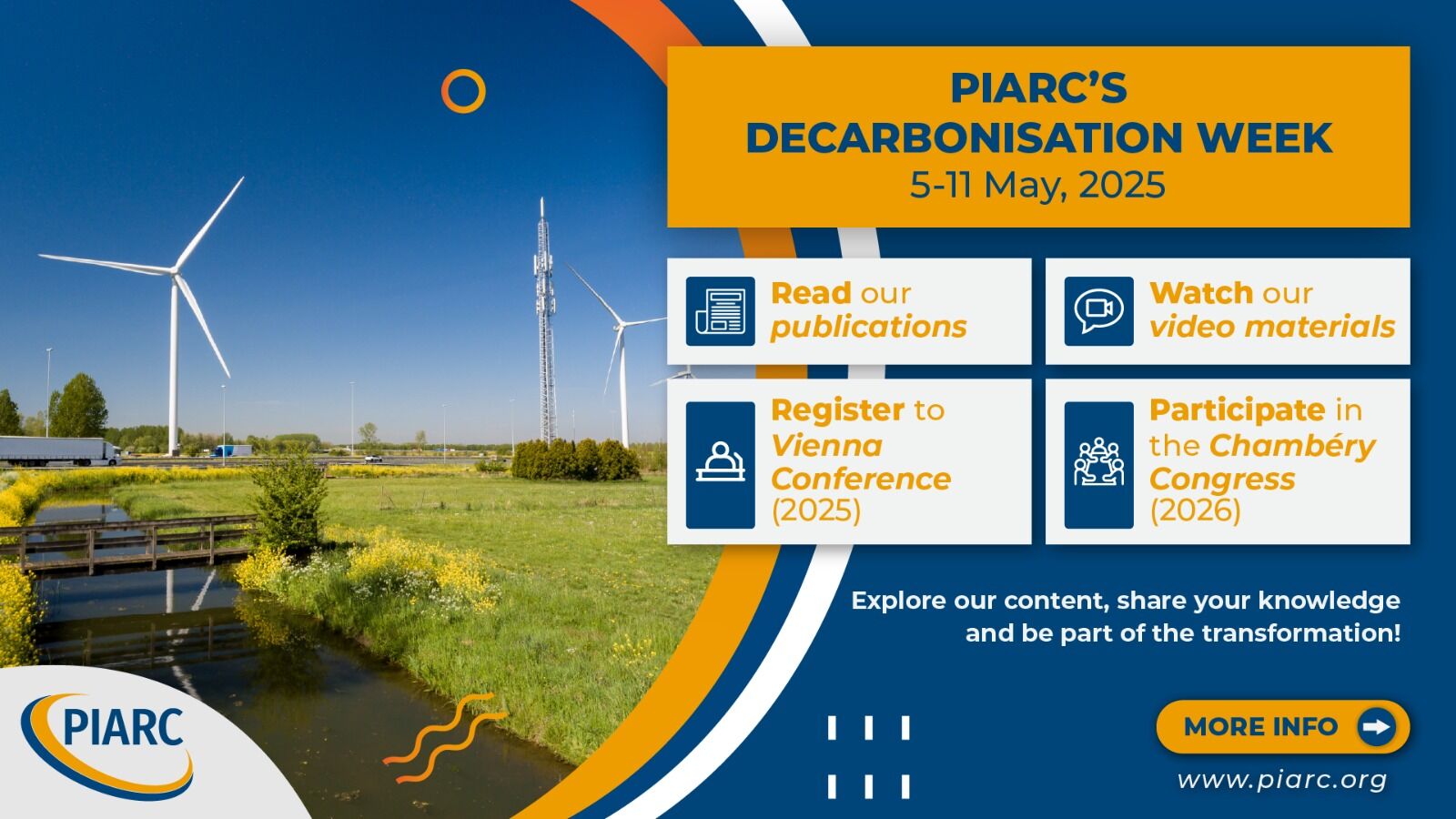PIARC and the Road to Decarbonisation
Published on 5th May 2025
As part of PIARC’s Decarbonisation Week (5–11 May 2025), we are proud to highlight the Association’s many initiatives and resources that support the transition to a low-carbon road sector.
Decarbonisation is one of PIARC’s strategic priorities. Through international cooperation, innovation and technical expertise, we are working to help the road community reduce emissions while continuing to deliver safe, efficient and inclusive mobility. Together, we can shape a more sustainable future — one road at a time.
Why decarbonise road transport?
Road transport is essential to modern life. It connects people, supports economies, and enables access to goods and services. In many regions, especially in Low- and Middle-Income Countries (LMICs), road infrastructure development is vital for growth and social inclusion.
At the same time, the road sector is a significant source of carbon emissions — linked to the construction, operation, maintenance and use of road infrastructure. Reducing these emissions is a major global challenge. For PIARC, balancing development and sustainability is essential, and the sector must be part of the solution to climate change.
A global platform for knowledge and action
PIARC provides a global platform to share experiences, promote innovation and develop practical recommendations to reduce emissions across all aspects of the road sector. This effort brings together experts from around the world who collaborate across multiple Technical Committees (TC).
TC 3.5 – Road Infrastructure for Road Transport Decarbonisation
Freight and passenger transport on roads accounts for over 75% of global inland transport emissions. Technical Committee 3.5 helps accelerate the decarbonisation of road infrastructure by sharing experiences among road agencies, identifying best practices, and avoiding missteps through lessons learnt.
Its work covers:
- National strategies and policies for decarbonisation of the road passenger and freight transport sector, including objectives and deployment plans
- Electric Road Systems (ERS) to decarbonise the road transport sector
- Solutions to decarbonise the road transport sector with a focus on road users, including technology solutions
- Solutions for alternative energy production and sources in the road sector, including solar panels and wind turbines along roads
The Committee also focuses on enabling technologies and policy considerations, to help road infrastructure contribute to national green energy production goals.
Interview with Jan Pettersson, Chair of TC 3.5 on infrastructure solutions for low-carbon transport:
TC 4.5 – Decarbonisation of Road Construction and Maintenance
Technical Committee 4.5 addresses the carbon impact of construction and maintenance across all phases of road projects.
Its work covers:
- Improving logistical and technological decarbonisation efficiency of road construction projects and maintenance
- New technologies for the measurement and inspection of road decarbonisation initiatives
- Decarbonising road construction project logistics
- Decarbonisation of construction and maintenance equipment
- Carbon calculators
Interview with Janusz Bohatkiewicz, Chair of TC 4.5 on reducing emissions in construction and maintenance:
Both Committees are actively contributing to a deeper, evidence-based understanding of how to reduce emissions while delivering resilient and sustainable infrastructure.
In addition to TC 3.5 and TC 4.5, several other PIARC Technical Committees also integrate decarbonisation into their work. Whether through climate-resilient asset management, energy-efficient winter service or sustainable finance, these Committees ensure that decarbonisation remains a truly transversal priority within PIARC’s Strategic Plan.
Highlights from PIARC’s work on decarbonisation
Global Road Voices – A podcast on decarbonisation

The second episode of PIARC’s “Global Road Voices” podcast focuses on decarbonising road transport. Guests include:
- Fabio Pasquali, Strategic Theme Coordinator for Decarbonisation
- Jan Pettersson, Chair of TC 3.5
- Nadia Lappa, Technical Advisor for Decarbonisation
They explore current challenges and practical solutions to achieve carbon neutrality in road transport.
Listen now: YouTube (with video and subtitles in English; French and Spanish available soon), Spotify, Apple Podcast and Amazon Music!
PIARC International Conference – 7–9 May 2025, Vienna (Austria)

This conference on Global Strategies for Infrastructure and Road will bring together experts to address the climate crisis and promote innovative decarbonisation practices. It is co-organised by:
- TC 3.5 “Road Infrastructure for Road Transport Decarbonisation”
- TC 4.5 “Decarbonisation of Road Construction and Maintenance”
Austria, a climate action leader in the road sector, will host this major event.
>> Learn more
Resources and publications
PIARC has developed a wide range of knowledge resources to support the decarbonisation effort:
- Carbon Neutrality of the Road Sector (2022): Actionable strategies to reduce emissions in road construction and maintenance.
- Electric Road Systems (2018): An early look at ERS and its potential, as well as current limitations.
- Solar Pavements in Japan: A Young Professional’s innovation for energy-producing roads, featured in Routes/Roads N°399.
- Routes/Roads N°400 – Decarbonisation of Roads: A full issue dedicated to this critical theme, with contributions from global experts.
From Congresses to action: Prague 2023 & Chambéry 2026
Prague 2023: A dedicated session on carbon neutrality brought together experts to share new strategies. Presentations are available in the Congress Proceedings.
Chambéry 2026: The 17th PIARC Winter Service and Road Resilience Congress (10–13 March 2026) will feature decarbonisation as a key theme.
Join the movement
PIARC invites all stakeholders — governments, road administrations, the private sector, researchers and young professionals — to take part in this shared journey. By embracing innovation, collaboration and evidence-based strategies, the road sector can reduce its carbon footprint and contribute meaningfully to global climate goals.
Explore our content, share your knowledge, and be part of the transformation.
This is what PIARC’s Decarbonisation Week is all about.
